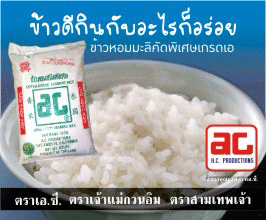IMMIGRATION: THE TERRIBLE CONSEQUENCES OF OVERSTAYING YOUR VISA PART 1: BARS TO READMISSION
Hello everyone! This week is part 1 covering an important issue in immigration law concerning visa overstays. This week I will be answering an email question as well as covering possible bars to readmission after a visa overstay. Next week I will continue with some additional consequences of visa overstays and some important facts. If you are new to my articles, I suggest you continue reading because this week's topic may have serious impact on either you, or someone you know.
I have covered family-based immigrant visas in the past, specifically the petition for alien relative (USCIS' Form I-130). As a reminder, every US Citizen or lawful permanent resident must file the I-130 in order to first establish the eligibility necessary to sponsor their alien relative for lawful permanent residency ("Green Card"). In my past articles, I have mentioned the difference between consular processing and adjustment of status in order to obtain lawful permanent residency. And although I have mentioned before how important it is to maintain lawful nonimmigrant status while waiting for approval of the petition for alien relative, I still get many calls from people having issues regarding overstaying their visas. From speaking to these people, I have discovered that many times it is not their fault. They hired someone to prepare their petitions, therefore it is the fault of these other people - either an attorney, a tanat, or whoever did their case because they did not inform their clients about the consequences of overstaying their visa; specifically for cases where the client is not an immediate relative. As you will read, this can have terrible consequences later.
Email - This week’s question comes from Khun “Somsri” from N. Hollywood, CA (Republished):
Q: “Dear Khun Joseph. I am a naturalized US Citizen. Many years ago, my son came here to the US on a tourist visa. About 4 months after he arrived, I hired an attorney so that he could submit a petition to immigration for my son's green card. Just last week, I received notice from immigration that my petition (I-130) for my son was approved yet I could not proceed with adjusting status at this time here in the US. What does this mean? Does my son have to go back to Thailand? I appreciate your help in this matter. Thank you.”
A: Dear Khun Somsri. Unfortunately, yes, your son will have to return to Thailand to continue the process of obtaining his green card through consular processing. However, that is not the worst thing. You mentioned that your son came to the US with a nonimmigrant tourist visa, which generally has a 6-month validity. I'm assuming that your son has been here all this time, and as such, has accrued unlawful presence by overstaying his visa. Since it generally takes many years for a US citizen's petition for a non-immediate relative to be approved, I'm also assuming that your son has been here for over 1 year, which would mean that if he were to leave the US, he would be barred from returning for another 10 years!!!
As I mentioned, I have had more than a few people ask me about their cases with this very similar set of circumstances. To avoid the unfortunate outcome of not being able to sponsor your relative, read on.
OVERSTAYING YOUR VISA = UNLAWFUL PRESENCE!
Whenever a national or citizen from a different country enters the United States on a visa, or through the Visa Waiver Program, a US Customs and Border Protection official will inspect that person. If admission is approved, they will issue an I-94 Arrival/Departure card or under the more recent process, file an electronic version that you can review online. The I-94 record indicates not only when you entered the US, but when you must depart it by. If you stay past the period allowed, you will have overstayed your authorization. Counting from the day after your authorized stay, any amount that you overstay will begin to accrue for purposes of counting "unlawful presence"; that is, the time in which you are present in the US without lawful status. The time you overstay your visa may have serious consequences should you consider requesting any immigration benefit in the future.
THE 3 YEAR / 10 YEAR / PERMANENT BARS TO READMISSION
As I mentioned, if you remain in the US beyond the period authorized in your I-94, you will begin to accrue days of unlawful presence. Depending on how long you have overstayed your visa authorization, you may be barred from readmission should you leave the US. In its simplified form, the law on unlawful presence are as follows:
3 Year Bar: If you accrue unlawful presence of more than 180 continuous days (6 months) but less than one year, and you leave before any official, formal immigration court removal proceedings are initiated against you, you will be barred from reentering the United States for a period of 3 years.
10 Year Bar: If you accrue unlawful presence of more than 365 continuous days (1 year), then leave prior to the initiation of deportation or other formal procedures against you, you will be subsequently barred from reentering the United States for a period of 10 years.
Permanent Bar: If you accrue unlawful presence of more than one year total (in the aggregate, not necessarily continuous), or are judicially ordered removed from the U.S., and then subsequently enter or attempt to enter without inspection, you will be permanently barred from the U.S. (possibly for life; though after 10 years, you can request special permission to apply for a visa or green card).
Now that you have read Part 1 and understand some consequences of overstaying your visa, I hope you take heed and pass along this information to your friends. In part 2 of this topic, I will cover additional consequences to overstaying one's visa. There are too many Thai people being denied or barred because of not being informed about the law.
As always, I am here for you. If you have questions or comments related to this article, or if you have some other legal issue, you would like me to assist you with, please contact me (Text/Call): (818) 505-4921.
For those people who are currently in Thailand, my LINE ID is: JC_Esq (Note: If you are in the United States, please contact me at: (818) 846-5639
If you have any questions that you would like to be answered in future articles, please email me at: JC4LAW@HOTMAIL.COM. And if you have not done so, please be sure to visit my website at: WWW.JC4LAW.COM for general information regarding this and many other topics in Business, Property and Family Law, and also on FACEBOOK at: https://www.facebook.com/ThaiAttorney Be sure to follow (and "like") me for the most recent updates in the law!
Disclaimer: The information contained herein have been prepared for informational purposes only and are not to be considered legal advice unless otherwise specified. If you have a specific question regarding your personal case, please contact the Law Offices of Joseph Chitmongran for a full consultation.


































